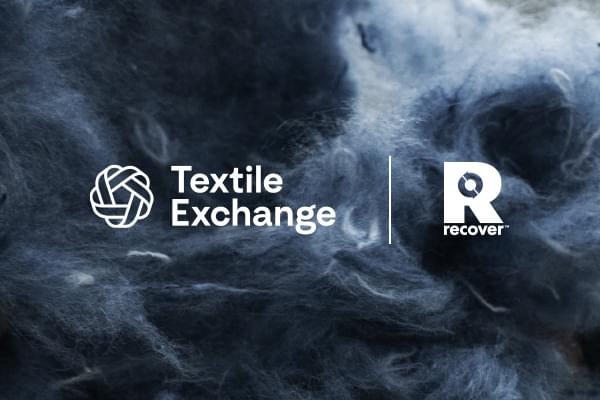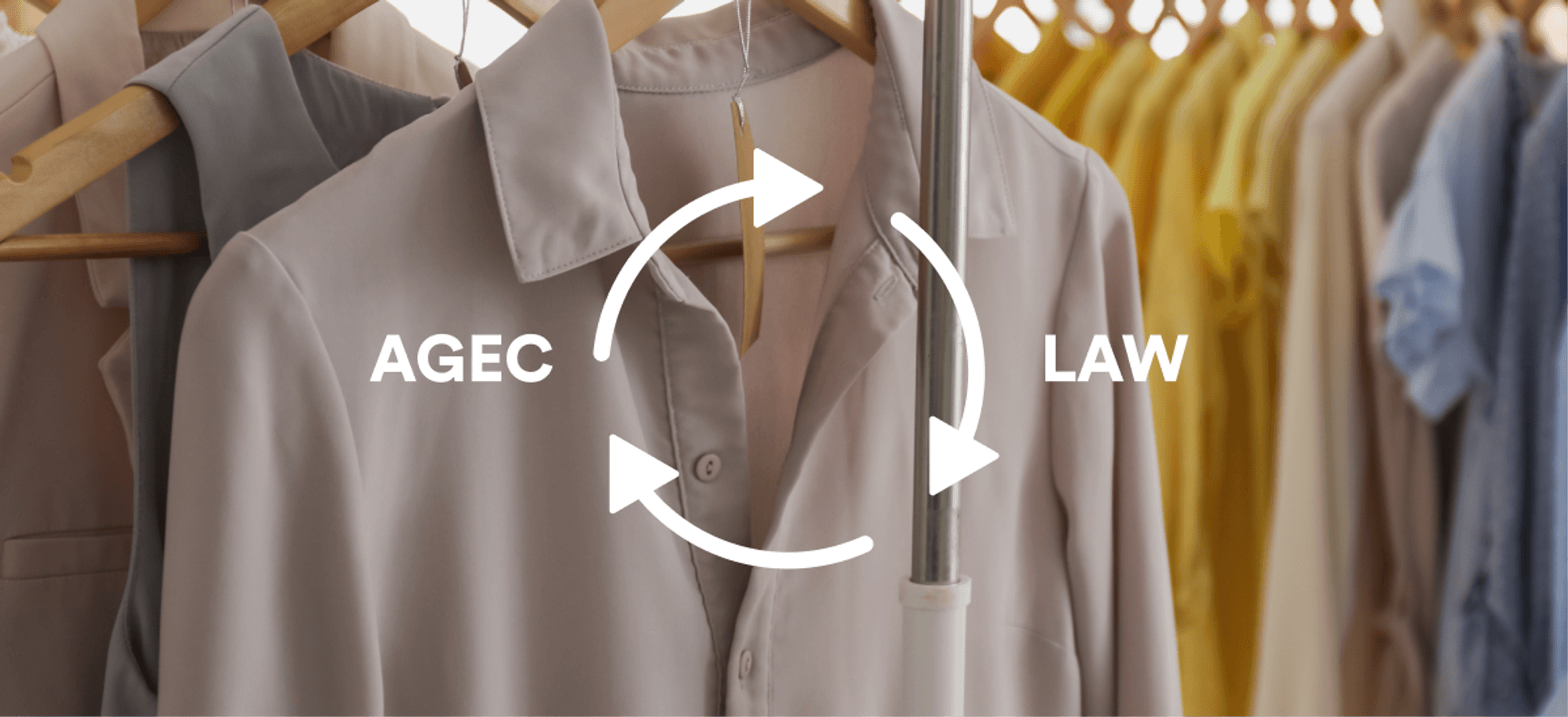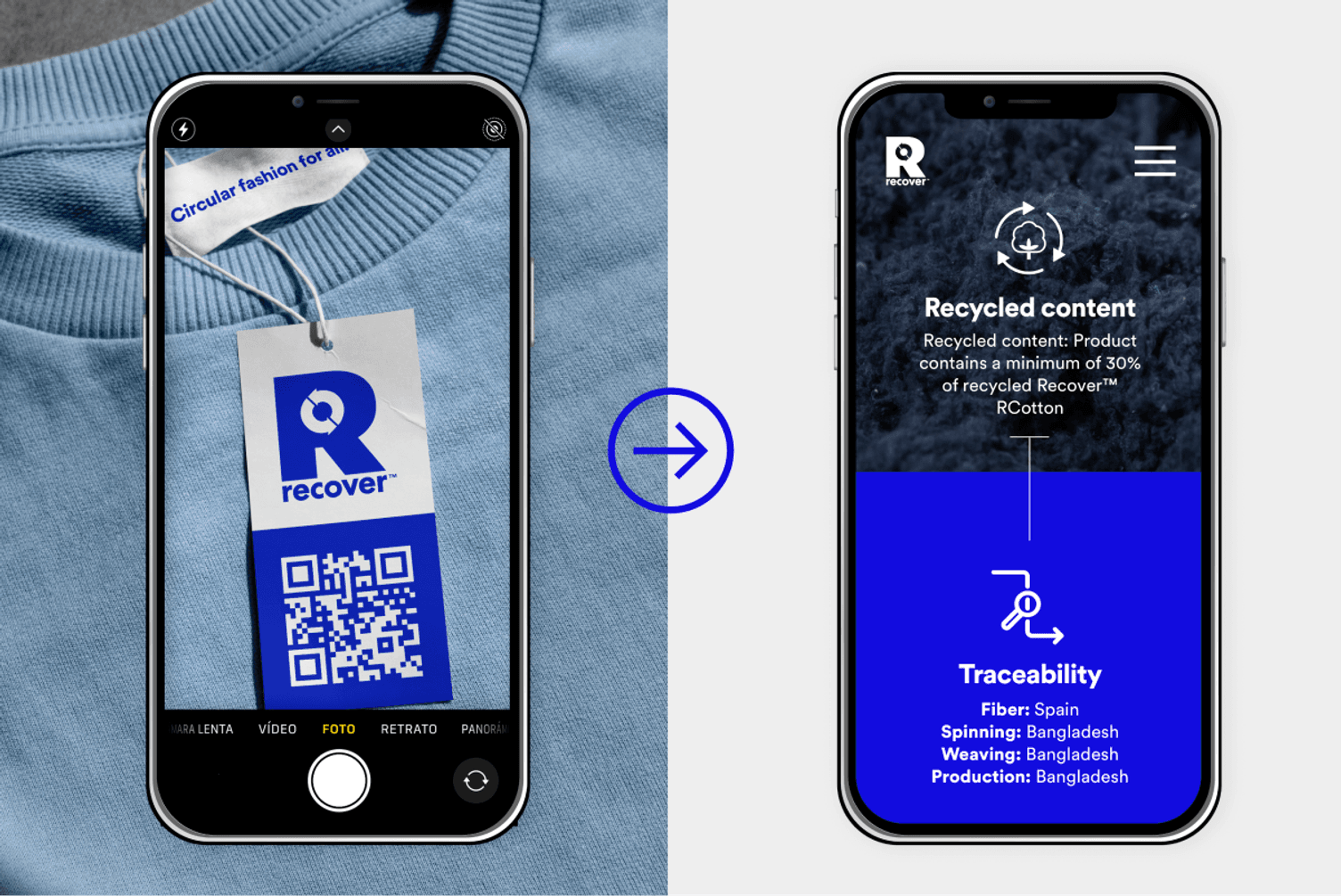Recover’s team reflects on Textile Exchange Conference 2025 “Shifting Landscapes”

Site map
This January 2023 the measures approved by the French Parliament against greenwashing come into full force.

In April 2022, the French Decret n° 2022-748, formerly known as the Loi AGEC (anti-waste law for a circular economy) was published. This Decree regulates and mandates certain information provided to consumers and will come into play this January 2023. The aim of this regulation is to provide consumers with information about the environmental qualities and characteristics of waste-generating products, including textiles.
This regulation will apply to all producers, importers, distributors, or other parties with an annual turnover >50M€ who are responsible for placing at least 25,000 pieces of waste-generating consumer products on the French market.
An exception is made for products where the last units are placed on the market between 1st January 2023 and 31st March 2023.
In 2024, the law will extend to an annual turnover of more than 20 million euros and at least 10,000 pieces on the French market. And in 2025 the decree will extend to an annual turnover of more than 10 million euros and 10,000 pieces on the French market.

Recycled content. The statement “product containing at least X% recycled materials” must be displayed on the product. The incorporation of recycled materials must also be communicated to consumers for packaging used to market products consumed or used by households, including those consumed outside the home.
Traceability. Companies will need to provide traceability information for a product. Brands must disclose where each stage of production takes place. So, for textiles: cutting and sewing, knitting and weaving, dyeing, and printing.
Microplastics. Companies are required to disclose information on the presence of plastic microfibers if a textiles product contains more than 50% of synthetic fibers.
Hazardous substances. The presence of hazardous chemicals must be communicated if the concentration is more than 0.1% of the mass in a substance, mixture, or article in line with Article 3 of EU REACH regulation.
Recyclability. Information on a product or packaging’s recyclability should be expressed in the statement “mostly recyclable product” or “mostly recyclable packaging”. The regulation states that for a product to be recyclable, it must cover the following 5 elements:
Reusability. Statements such as “reusable packaging” or “refillable packaging” must be displayed on the packaging.
Prohibited environmental terms. Under this decree, the terms “biodegradable”, “Respectful of the environment”, or any equivalent allegation are prohibited from being used on a product or its packaging.

The information on the environmental characteristics of a product should be provided in an easily accessible digital format at the time of purchase.
At Recover™, we support transparency and regulatory measures meant to combat greenwashing across the board. In that sense, France’s new eco-labeling decree hopes to:
And while France’s new law is a commendable first step, it isn’t without potential complications.
While we applaud and support comprehensive measures to hold brands accountable, we believe that it’s important that efforts are aligned industrywide.
As France has released this decree prior to the European Union’s upcoming anti-greenwashing regulations (the Green Claims Initiative) it’s not yet clear whether the two will be compatible.
In other words: companies might have to do the work... twice.
In the interim while the EU adopts its own rules, companies operating in France could have to invest in measures to adhere to French regulations. But once the EU Green Claims Initiative is adopted, companies would have to reevaluate and adjust to the EU’s standards.

